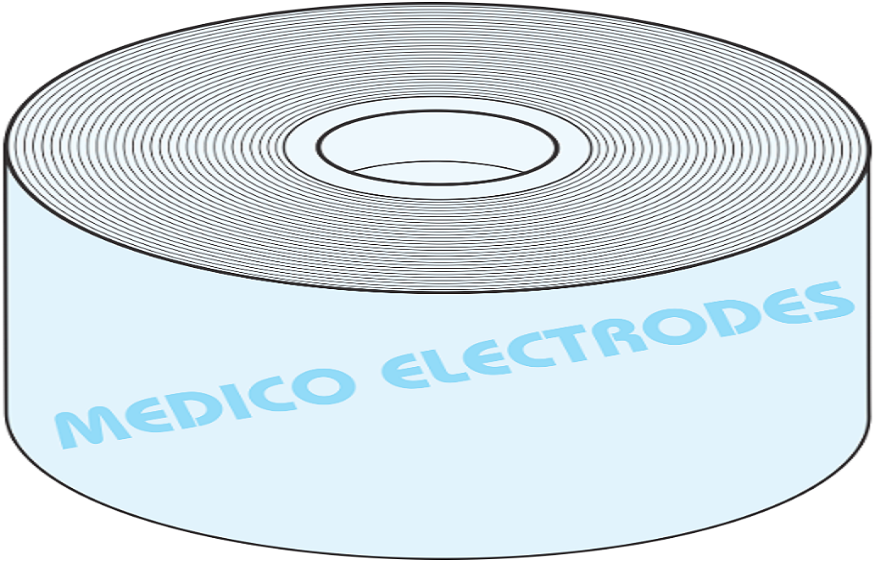In the realm of modern medicine, advancements in technology continue to redefine healthcare practices. One such innovation that has gained significant attention is electrode hydrogel, particularly in the context of electrocardiogram (ECG) electrodes. In India, where healthcare infrastructure is rapidly evolving, the integration of electrode hydrogel in ECG electrodes holds immense promise for improving diagnostic accuracy and patient care.
Understanding Electrode Hydrogel
Electrode hydrogel, a conductive gel-like substance, serves as a crucial component in ECG electrodes. Its primary function is to establish a low-impedance interface between the skin and the electrode, facilitating the efficient transmission of electrical signals generated by the heart. This conductive gel ensures optimal electrode-skin contact, resulting in accurate ECG readings.
The Importance of ECG Electrodes
ECG electrodes play a pivotal role in monitoring cardiac activity by detecting and recording the electrical impulses of the heart. These recordings provide valuable insights into various cardiac conditions, including arrhythmias, myocardial infarction, and heart rhythm abnormalities. Therefore, the accuracy and reliability of ECG electrodes are paramount for effective diagnosis and treatment planning.
Challenges in Conventional Electrodes
Traditional ECG electrodes often face challenges such as signal interference, motion artifacts, and discomfort during prolonged use. These issues can compromise the quality of ECG recordings and impede the diagnostic process. Moreover, conventional electrodes may cause skin irritation or allergies due to the materials used in their construction.
Advantages of Electrode Hydrogel
Electrode hydrogel offers several advantages over conventional electrode materials. Firstly, its high conductivity ensures optimal signal transmission, reducing noise and enhancing the clarity of ECG recordings. Secondly, the gel-like consistency conforms to the contours of the skin, promoting better electrode-skin contact and minimizing motion artifacts. Additionally, electrode hydrogel is hypoallergenic and gentle on the skin, making it suitable for patients with sensitive skin or allergies.
Innovations in Electrode Design
The integration of electrode hydrogel has spurred innovations in ECG electrode design. Manufacturers are incorporating advanced materials and engineering techniques to enhance the performance and user experience of ECG electrodes. For instance, some electrodes feature adhesive backings that adhere securely to the skin without causing discomfort or leaving residue upon removal. Others utilize flexible substrates to ensure compatibility with different body shapes and sizes, allowing for optimal electrode placement.
Applications in Remote Monitoring
The emergence of telemedicine and remote patient monitoring has amplified the importance of reliable ECG electrodes. Electrode hydrogel plays a critical role in enabling remote ECG monitoring by ensuring consistent and accurate signal acquisition. Patients can conveniently wear ECG electrodes equipped with hydrogel technology to record their cardiac activity from the comfort of their homes, facilitating timely intervention and reducing the need for frequent hospital visits.
Market Trends in India
In India, the demand for high-quality medical devices, including ECG electrodes, is on the rise. Healthcare providers and institutions are increasingly investing in advanced technologies to improve patient care and clinical outcomes. The integration of electrode hydrogel in ECG electrodes aligns with this trend, as it offers superior performance and patient comfort compared to conventional alternatives. As a result, manufacturers and suppliers of electrode hydrogel are witnessing growing opportunities in the Indian healthcare market.
Challenges and Opportunities
Despite the numerous benefits of electrode hydrogel, challenges such as cost considerations and regulatory requirements persist. Manufacturers must strike a balance between innovation and affordability to ensure the widespread adoption of hydrogel-based ECG electrodes India. Additionally, adherence to quality standards and regulatory guidelines is essential to guarantee the safety and effectiveness of these medical devices. However, with the increasing emphasis on healthcare infrastructure development and technology integration in India, the market for electrode hydrogel is poised for significant growth.
Future Directions
Looking ahead, the future of electrode hydrogel in ECG electrodes holds immense potential for further innovation and advancements. Research efforts aimed at improving the conductivity, longevity, and biocompatibility of hydrogel materials will drive continued enhancements in ECG electrode technology. Moreover, the integration of artificial intelligence and machine learning algorithms for real-time ECG analysis could revolutionize cardiac care, paving the way for more personalized and precise diagnostic solutions.
Addressing Healthcare Disparities
One of the most pressing issues in healthcare worldwide, including India, is the existence of healthcare disparities. Access to quality healthcare services, including diagnostic tools like ECG, varies widely across different regions and socioeconomic strata. Electrode hydrogel technology in ECG electrodes has the potential to address some of these disparities by offering a cost-effective solution without compromising on quality.
Cost-Effectiveness and Accessibility
One of the advantages of electrode hydrogel technology is its potential for cost-effectiveness, especially when considering the long-term benefits it offers in terms of improved diagnostic accuracy and reduced need for repeat tests. In a country like India, where healthcare expenses can pose a significant burden on individuals and families, affordable yet reliable medical devices are crucial. Electrode hydrogel-based ECG electrodes can contribute to making essential cardiac diagnostic services more accessible to a broader segment of the population.
Rural Healthcare and Telemedicine
In rural areas of India, access to specialized healthcare services, including cardiology consultations, is often limited. Telemedicine platforms have emerged as a solution to bridge this gap by enabling remote consultations and diagnostics. Electrode hydrogel technology facilitates the use of ECG electrodes in telemedicine applications by ensuring accurate signal acquisition even in remote settings. This advancement allows healthcare providers to remotely monitor patients’ cardiac health, provide timely interventions, and offer expert consultations, regardless of geographical barriers.
Integration with Wearable Devices
Another exciting development in healthcare technology is the integration of ECG monitoring capabilities into wearable devices such as smartwatches and fitness trackers. Electrode hydrogel technology plays a crucial role in ensuring the reliability and accuracy of ECG recordings obtained through these wearable devices. By incorporating hydrogel-based electrodes, wearable ECG monitors can provide users with real-time insights into their cardiac health, empowering individuals to take proactive measures to maintain heart health and seek medical attention if necessary.
Collaborative Research and Development
The advancement of electrode hydrogel technology in ECG electrodes requires collaborative efforts from various stakeholders, including researchers, clinicians, industry partners, and regulatory bodies. Collaborative research and development initiatives can accelerate innovation in hydrogel materials, electrode designs, and manufacturing processes, leading to the creation of next-generation ECG electrodes that are even more efficient, durable, and user-friendly.
Educational Initiatives and Training
Incorporating electrode hydrogel technology into clinical practice requires healthcare professionals to receive adequate training and education regarding its benefits, proper usage, and maintenance. Educational initiatives and training programs can help healthcare providers familiarize themselves with the features and functionalities of hydrogel-based ECG electrodes, ensuring optimal utilization and patient outcomes.
Conclusion
Electrode hydrogel represents a groundbreaking innovation in the field of ECG electrodes, offering enhanced performance, comfort, and reliability. In India, where the healthcare landscape is evolving rapidly, the adoption of hydrogel-based ECG electrodes holds significant promise for improving cardiac diagnostics and patient outcomes. By harnessing the power of advanced materials and technologies, healthcare providers can usher in a new era of cardiac care that is both effective and patient-centric.

